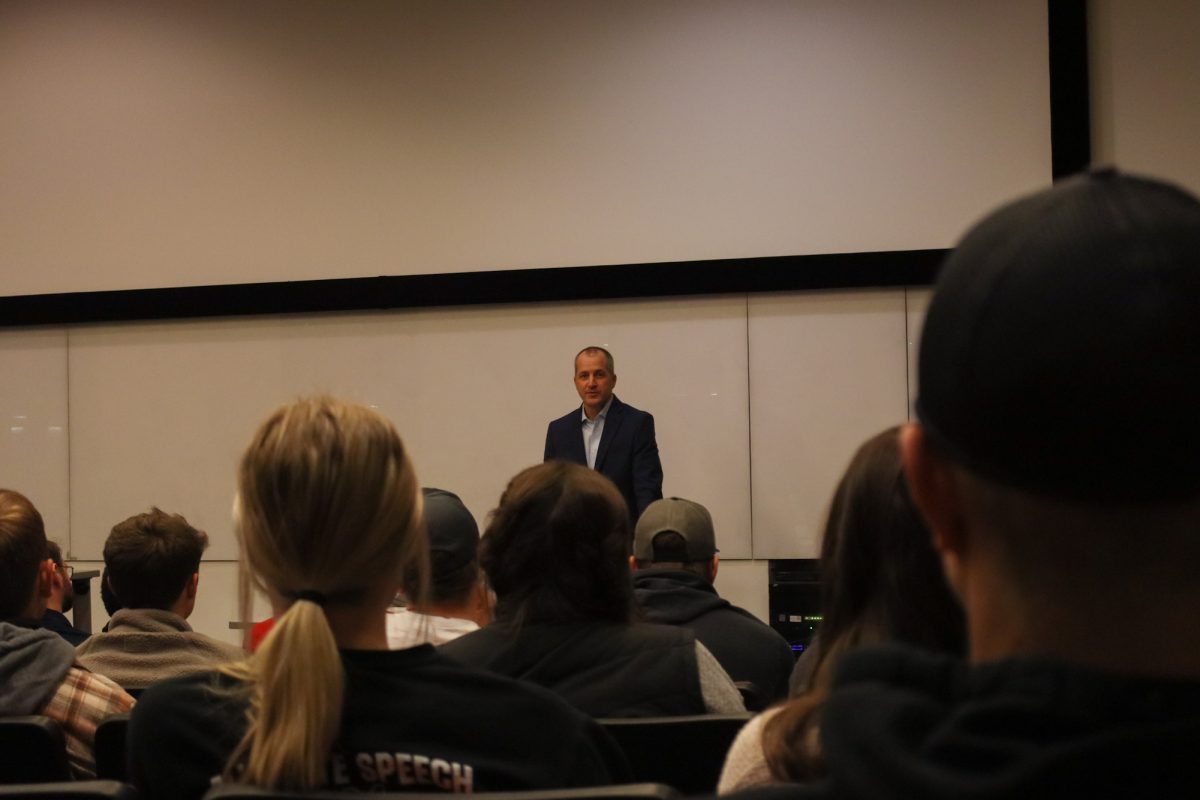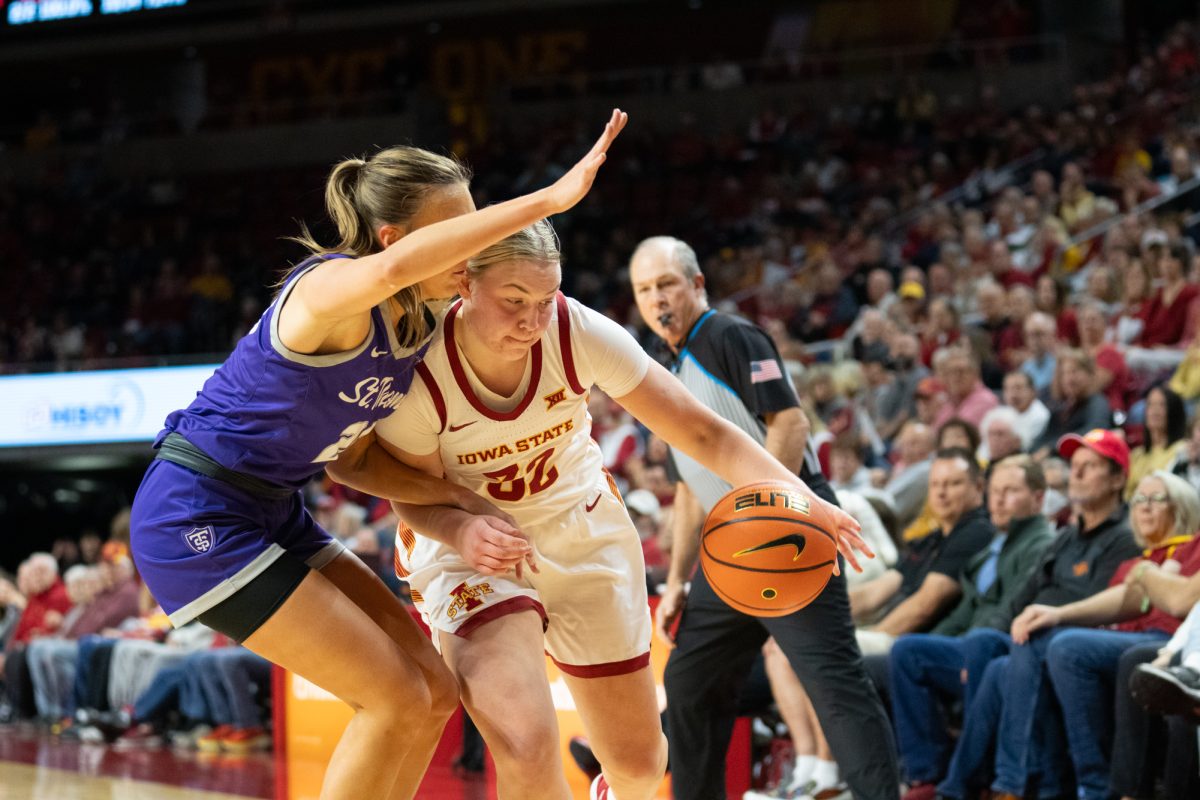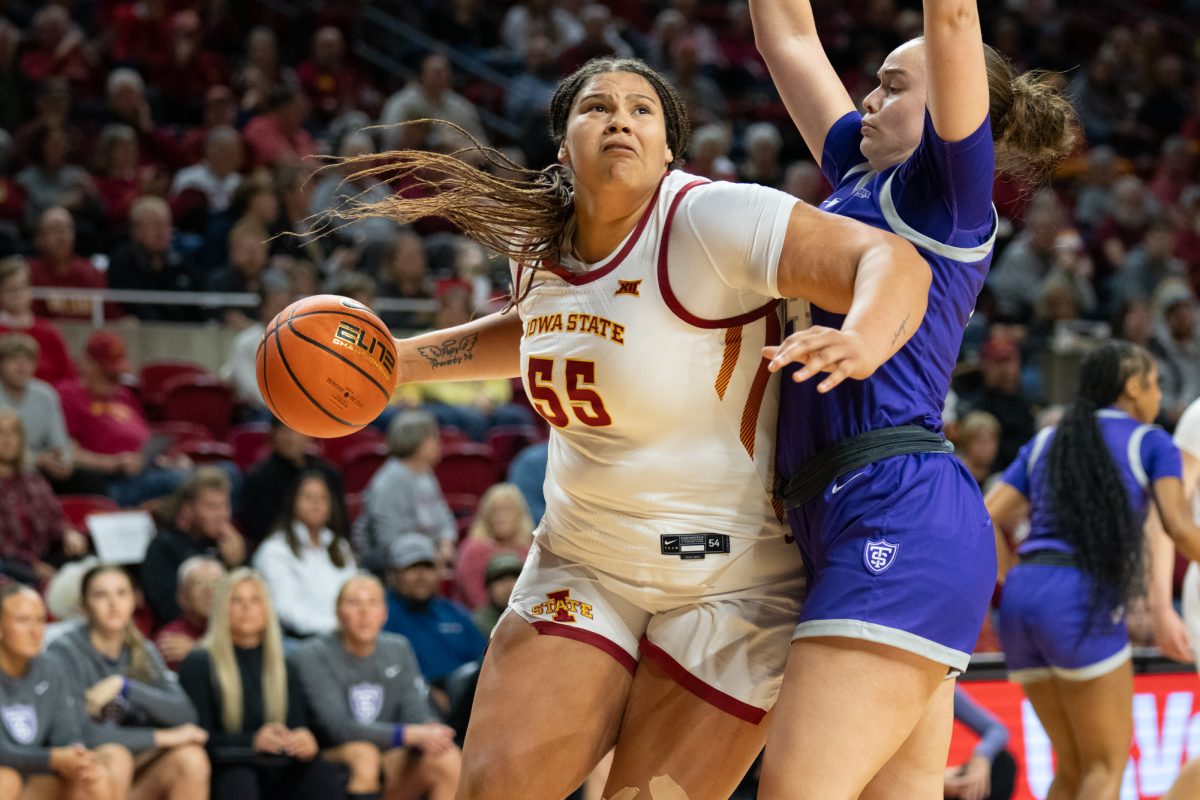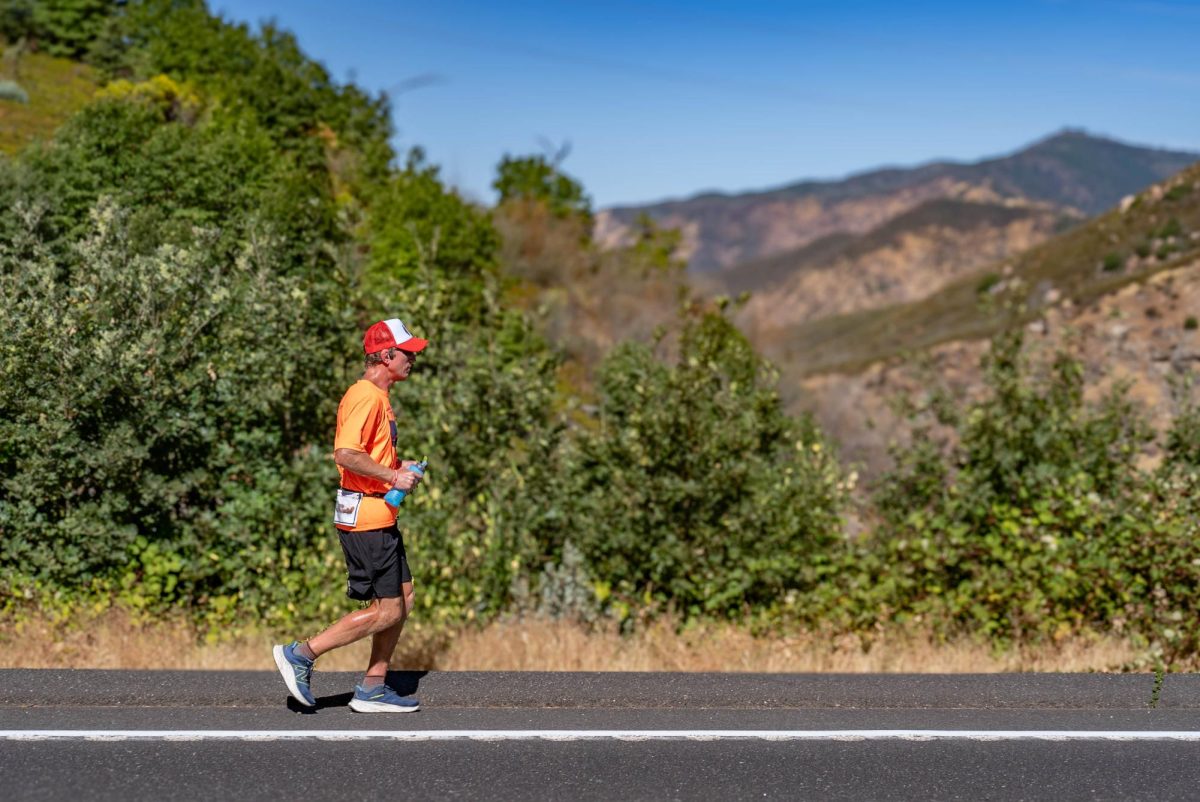‘Michael Collins’ takes historic look at Ireland’s turbulent past
November 1, 1996
Daily Staff Writer
Michael Collins may not be perfectly accurate, but it is a terrifically entertaining historical drama.
The title character, played by Liam Neeson (Schindler’s List), was a leader in Ireland’s fight for independence from British rule during and just after World War I.
As with most freedom fighters, some regard him as a terrorist, others call him a patriot.
Whatever he may have been, his story makes for great drama. Director Neil Jordan has crafted an intense and sometimes exciting film, one which won the Golden Lion Award for Best Film at the 1996 Venice Film Festival.
It wastes none of its two-plus hours, packing considerable story and plot. The story begins in 1916, as Collins and other revolutionaries are arrested following a failed offensive called the Easter Uprising. Collins is released in 1918, and within hours he is in the Irish countryside rallying the local farmers and raising a guerrilla force.
His tactics do not wash with his still-imprisoned and U.S.-born mentor, Eamon De Valera (Alan Rickman), who favors a campaign of international pressure against the British and a straightforward military engagement. But Collins refuses to compromise on his tactics.
His forces are so successful that the British send in a band of paramilitary thugs, the Black and Tans, to subdue the uprising.
They do not succeed, and De Valera, after returning from a year-long U.S. visit, orders a new offensive. Collins’ men fight the British to a draw and force a truce.
De Valera sends Collins to negotiate with the British, and he brings home a treaty establishing an Irish free state but requiring allegiance to Britain and partitioning the country. Collins sees this as a step toward full independence, but De Valera and his supporters reject it entirely and walk out of the government.
This sets off a brutal civil war which splits the country and results in the death of Collins’ closest friend, Harry Boland (Aidan Quinn), who joined De Valera’s side. Collins decides to head to De Valera’s headquarters and negotiate a cease-fire.
But while driving to the arranged meeting, Collins is killed in an ambush by a band of De Valera’s fighters.
Collins was just 31 when he died, respected by the British leaders who opposed him and considered a pioneer of modern guerrilla warfare.
Throughout the film, Collins and Boland spar for the attentions of Kitty Kiernan (Julia Roberts). Their relationship provides the leads with a level of humanity, and Boland’s loss of Kitty to Collins gives their conflict an added, personal dimension.
Neeson again demonstrates outstanding range as Collins. He is shown to be a vicious fighter, but one with a soft heart for his friends and loved ones.
Quinn, Rickman and Roberts are solid, and Stephen Rea is great as a detective feeding information to Collins.
A particular standout is Charles Dance as Soames, the British commander. He only gets a few minutes of screen time, but cuts an imposing path; no one plays bad guys with more class than Dance.
Especially impressive is Elliot Goldenthal’s score, which is exciting yet dark and discordant. It’s very appropriate for the film’s subject.
Jordan says he has gone to great lengths to ensure the film’s accuracy, but Collins led a mysterious life. His own people knew little of him, and the circumstances surrounding his death are still foggy.
But never mind. No historical film is entirely accurate due to dramatic concerns. And Michael Collins delivers as deep, thoughtful entertainment.
Michael Collins is rated R for graphic violence, language and subject matter.






